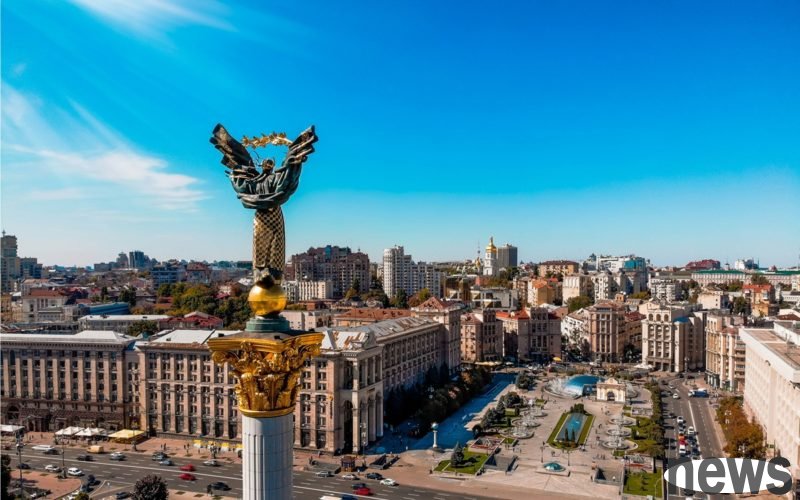The Ukrainian government recently announced that it will cooperate with NVIDIA (NVIDIA), a major American artificial intelligence (AI) chip manufacturer, to promote the wider integration of artificial intelligence technology into government and corp...

The Ukrainian government recently announced that it will cooperate with NVIDIA (NVIDIA), a major American artificial intelligence (AI) chip manufacturer, to promote the wider integration of artificial intelligence technology into government and corporate operations. Ukraine is also actively developing its domestic semiconductor industry, and the industry hopes to achieve mass production of chips within four years.
The Ministry of Digital Development of Ukraine and the Ukrainian Information Technology Association jointly organized the "WINWIN Conference 2025" on the 4th, focusing on 14 fields including military industry, medical technology, artificial intelligence and semiconductors, hoping to promote technological innovation and infrastructure construction and attract more international investment.
The Ministry of Digital Transformation of Ukraine announced on the same day that it will jointly promote a number of cooperation projects with NVIDIA to establish Ukraine's AI ecosystem and apply it to the public and private sectors. Roman Sioda, director of NVIDIA's Central and Eastern Europe business, participated in the video and said that this cooperation will "promote Ukraine to become an AI-first country" and emphasized that this move can strengthen Ukraine's "AI sovereignty" (AI sovereignty) and technological resilience.
Theoda pointed out that AI applications will help reshape the relationship between the government and the people and create more efficient and transparent public services.
Valeriya Ionan, advisor to the First Deputy Prime Minister of Ukraine and former deputy minister of the Ministry of Digital Development, pointed out that the government, enterprises, academia and international organizations will work together to integrate innovative resources and form a systematic plan to comprehensively enhance the country's scientific and technological strength.
Ukraine is the first country in the world to introduce AI functions into a nationwide government electronic platform. The official existing "Diia App" allows people to obtain ID cards, driver's licenses and pay fines through the app. It will be upgraded to "Diia.AI" in the future. In recent years, various countries have successively implemented the concept of "AI sovereignty", through locally developed AI technology, combined with language, culture and legal systems, to create systems that suit national conditions to ensure technology and data security.
In addition, the meeting also focused on the development direction of Ukraine’s semiconductor industry. The Ukrainian government approved the "Ukraine Global Innovation Strategy Until 2030, also known as the WINWIN Strategy" at the end of last year, which plans to start chip production between 2025 and 2027 in response to the 43 billion euro (approximately NT$1.5 trillion) chip bill promoted by the European Union. Ukraine's goal is to introduce the European market production chain, and it is estimated that the construction of the industry will require an investment of at least US$1 billion (approximately NT$30.8 billion).
Olexander Grudanov, senior R&D director of the American company Silvaco, pointed out that during the Soviet period, about 40% of microelectronic parts were produced in Ukraine, and Ukraine has a historical foundation and technological advantages. He suggested that Ukraine can first build an underground "clean room" for small-scale chip manufacturing. It is expected that it will take two years to complete the hardware project. Trial production can be launched in the third year, and special chips for military industry and electronic warfare can be mass-produced in the fourth year. It will first meet domestic demand and then gradually expand exports.
Evgeniy Astakhov, chairman of the National Semiconductor Association of Ukraine, said that Ukraine needs to establish a complete industrial chain, from mineral refining and research and development to talent cultivation and the establishment of incubation centers. Although there are currently only about 10 relevant companies, with the reorganization of global supply chains and the rise of regional self-sufficiency trends, Ukraine can rely on its military industry advantages and information technology talents to attract foreign investment cooperation and improve overall feasibility.
Ievgen Korotkyi, academic director of the Kyiv School of Economics, pointed out that both the Japanese and Taiwanese governments have invested resources in supporting the chip industry, and the Ukrainian government should also strengthen subsidies and investment.
Chip production is closely related to mineral raw materials. Before the Russo-Ukrainian war, Ukraine provided half of the world’s neon used in manufacturing semiconductors. Yegor Perelygin, Deputy Minister of Economy, Environment and Agriculture of Ukraine, said that only a few countries in the world have the minerals needed to manufacture wafers, and Ukraine has these resources. At present, China has gained an advantage in the market with its low-price strategy. Uzbekistan should strengthen its competitiveness through tariffs and international cooperation.
Pelelkin mentioned that the Uzbek-U.S. "Ukraine Reconstruction Investment Fund" has announced an investment of US$150 million (approximately NT$4.5 billion) in key minerals and energy, and currently about 10 to 15 projects are awaiting administrative approval. He expects that Ukraine will restart geological exploration that has been stalled for many years next year and conduct a more in-depth analysis of potential mining areas.